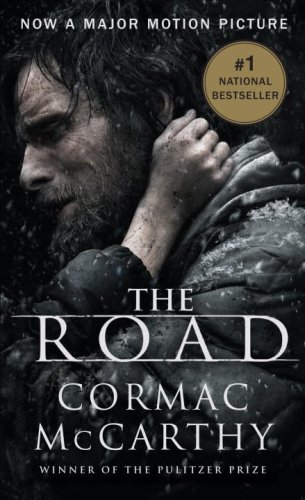All Nonfiction
- Bullying
- Books
- Academic
- Author Interviews
- Celebrity interviews
- College Articles
- College Essays
- Educator of the Year
- Heroes
- Interviews
- Memoir
- Personal Experience
- Sports
- Travel & Culture
All Opinions
- Bullying
- Current Events / Politics
- Discrimination
- Drugs / Alcohol / Smoking
- Entertainment / Celebrities
- Environment
- Love / Relationships
- Movies / Music / TV
- Pop Culture / Trends
- School / College
- Social Issues / Civics
- Spirituality / Religion
- Sports / Hobbies
All Hot Topics
- Bullying
- Community Service
- Environment
- Health
- Letters to the Editor
- Pride & Prejudice
- What Matters
- Back
Summer Guide
- Program Links
- Program Reviews
- Back
College Guide
- College Links
- College Reviews
- College Essays
- College Articles
- Back
The Road by Cormac McCarthy
The Road
Not many authors write books with intense imagination other than children authors, but Cormac McCarthy demonstrates in his novel The Road that incorporating imagination into a more sophisticated audience is possible. McCarthy received his inspiration to write the novel in El Paso on 2003 while thinking of the end of the world. He organized his novel to demonstrate the post-apocalyptic world and how a man and boy face the struggle with nature. Up until 2006, McCarthy spent a long time to finish his fictional story through hard work and determination. In the end, through the author’s vivid imagination and useful diction, McCarthy earned a prestigious Pulitzer Prize in 2007.
The author only uses two main characters to portray the whole novel. Beginning first couple of pages, he uses vivid imagery to describe the setting of the story. Because it is a post-apocalyptic time period, no plants or animals inhabit the land. The author implies that some sort of fire had burned the Earth into ash. The presence of darkened Earth has become a routine into the daily routines of the father’s and son’s lives located in their food, water, and air. His novel is based upon a rollercoaster-like suspense ride. He uses pathos appeal to take the reader on a journey of life and death. The man and son had faced many days where they did not know if they would survive the hunger or if they would live another day aside from being hunted. The organization of the novel is very unique. The author uses numerous flashbacks as the story progresses to emphasize the characteristics of the man and the boy.
The father and son encompasses on a journey where they mature from the beginning and end of the story. They chose from the very beginning that they were going to be the “good guys,” that they would never resort to cannibalism (129). The main conflict in the novel was to survive long enough to reach the coast, but once their dreams were achieved, they were not as satisfied as they thought they would be. There was no safe haven once they arrived at the coast. Starting from that point, they began to lose purpose and hope. Hunger always caused a problem for all the people in the land, and evidently “the bones and the skin piled together with rocks over them,” showing that the body had been cooked (pg 71). In the end of the novel the son experiences the biggest tragedy in his life. After being so dependent on his father, he is devastated by the father’s death from the illness caused by the environment. The son temporarily loses hope, and then becomes a man as he accepts his responsibility; he must “carry the fire” (pg 278). With great symbolism, the author exemplifies the fire showing hope and goodness. The fire must live on within the son standing for what he believes in. No matter how badly the events turn out, he must not lose his sight on his morals.
The book has many grotesque events which are only meant for the strong-willed of readers. The man and boy did not only face physical struggles against the world, but they also experienced many psychological incidents. Due to the circumstances, many inhabitants of the ashen Earth have to resort to cannibalism. McCarthy is an excellent writer due to his writing techniques, but the adventure is meaningless ending where the story began. The novel moved along at a very slow pace displaying an inefficient plot. Overall the book became another required assignment rather than a leisure reading.
Similar Articles
JOIN THE DISCUSSION
This article has 0 comments.

